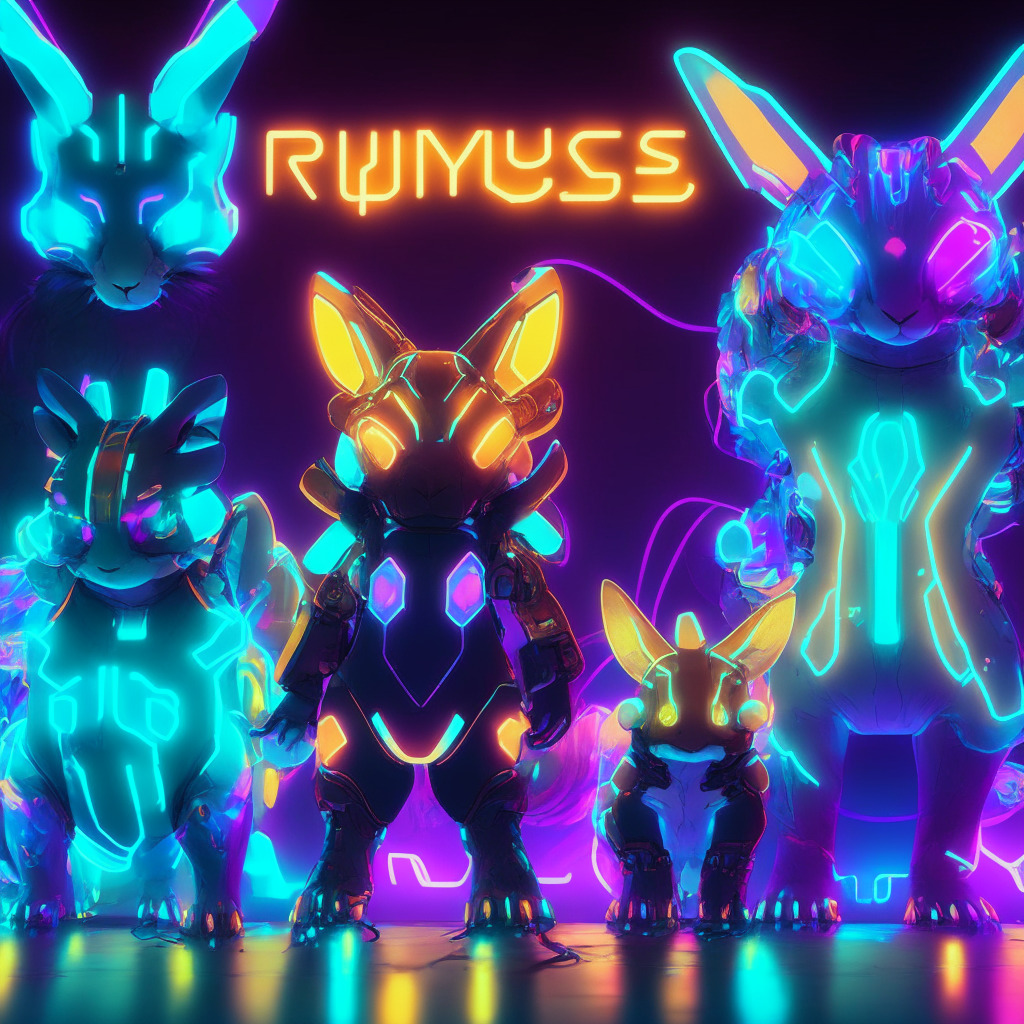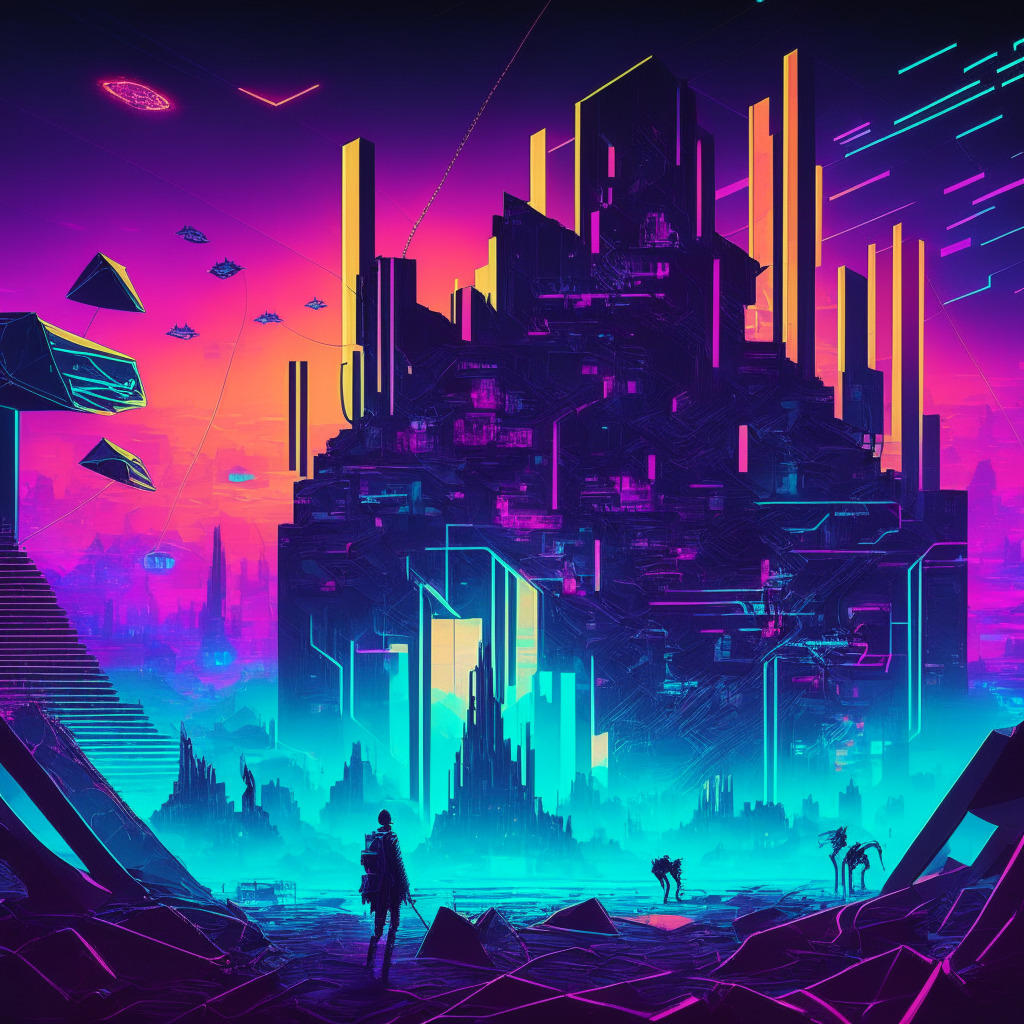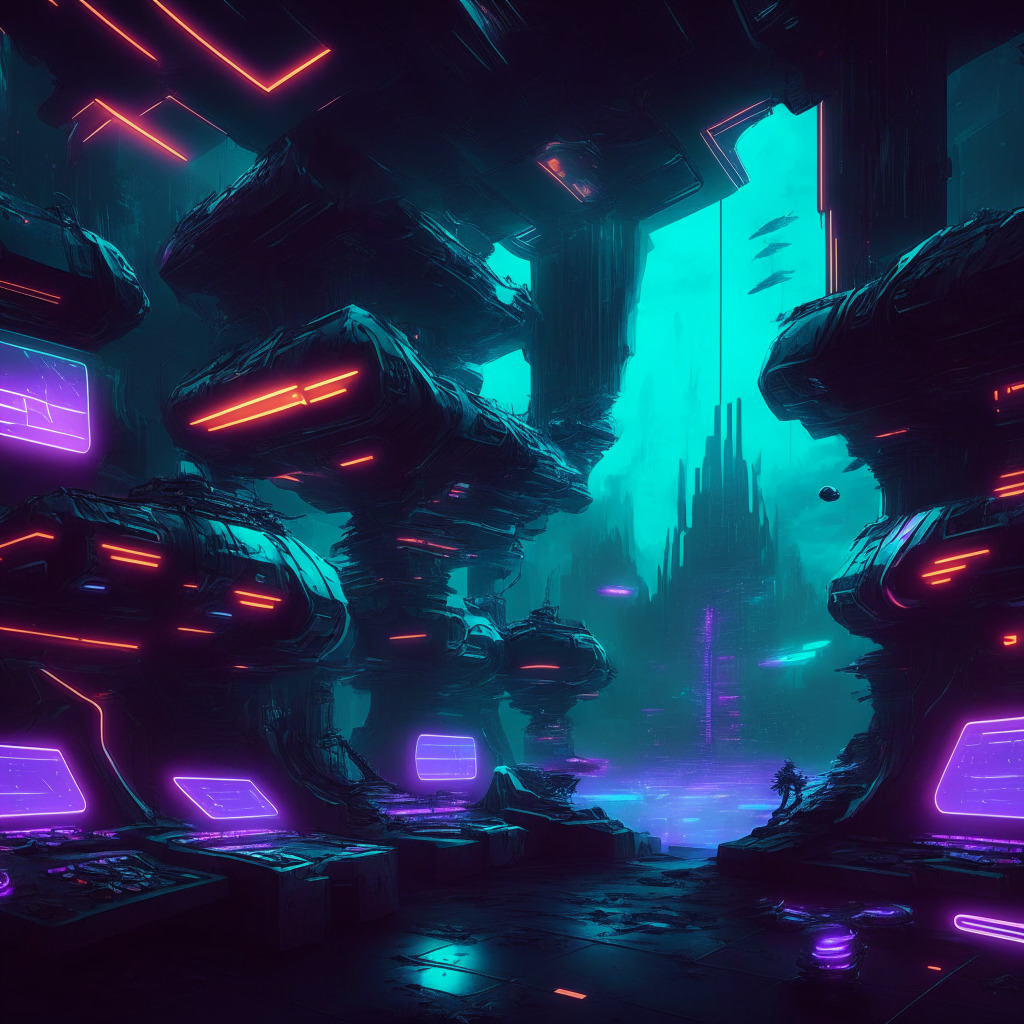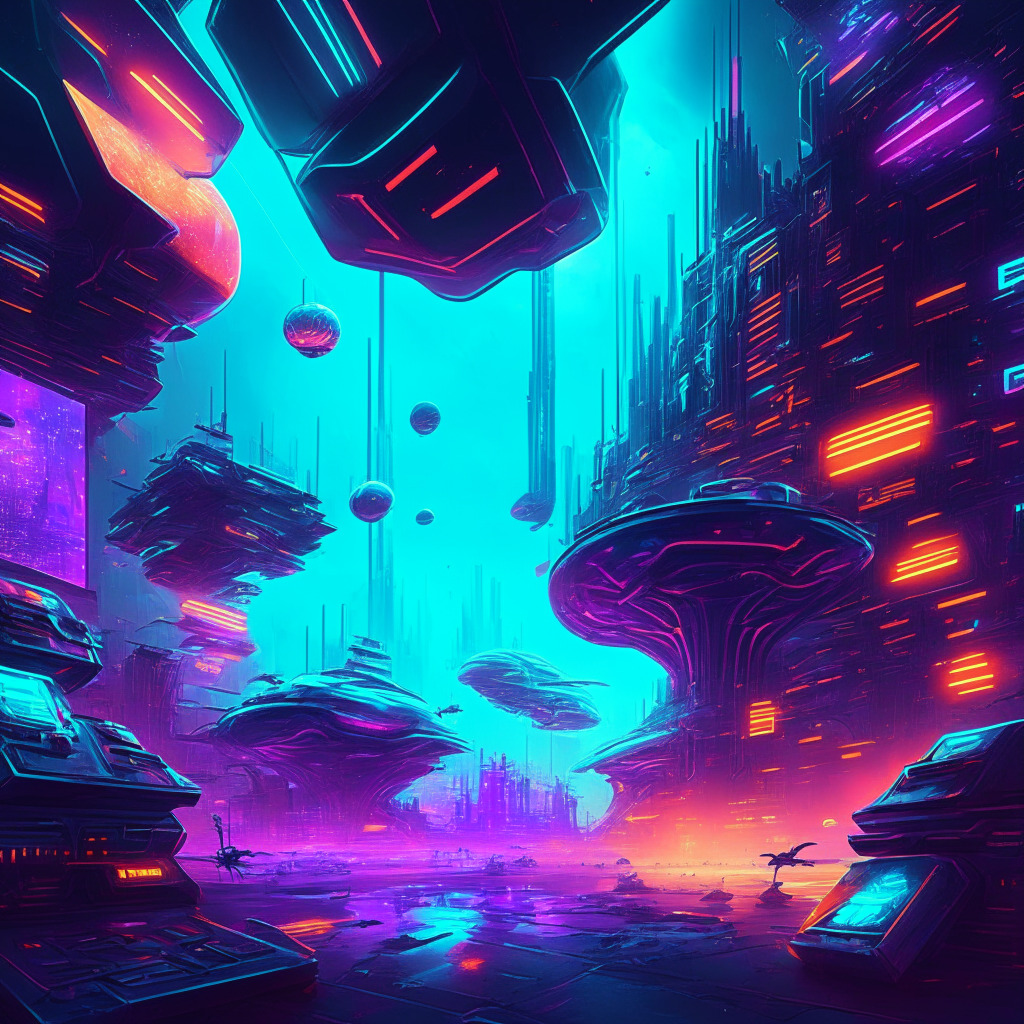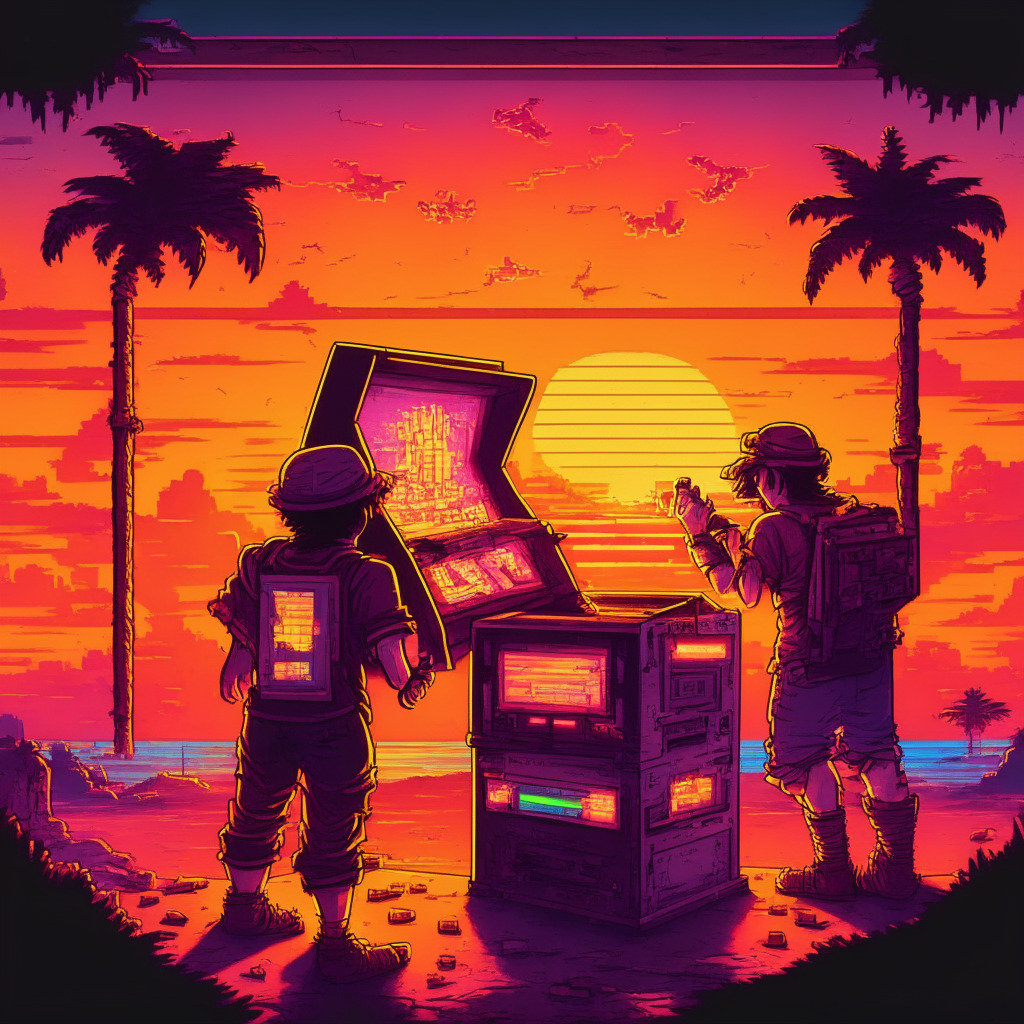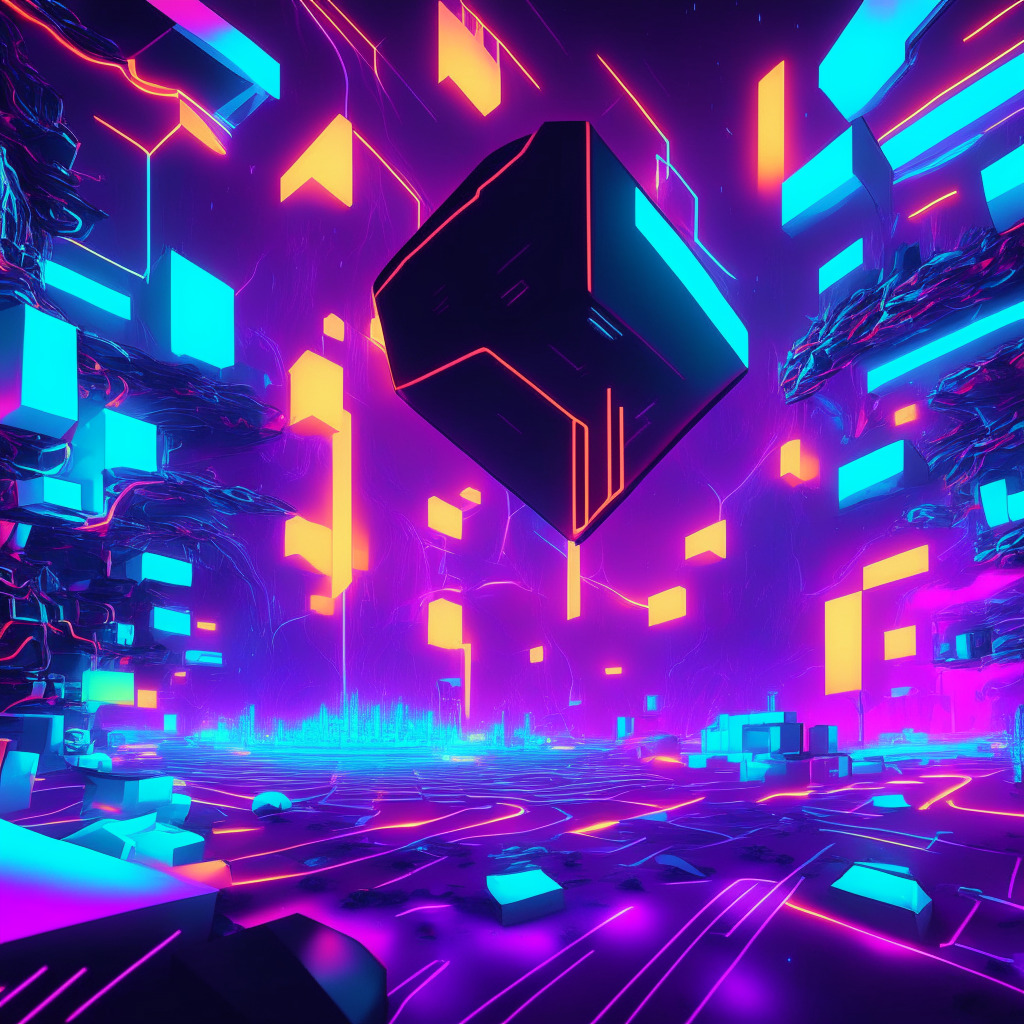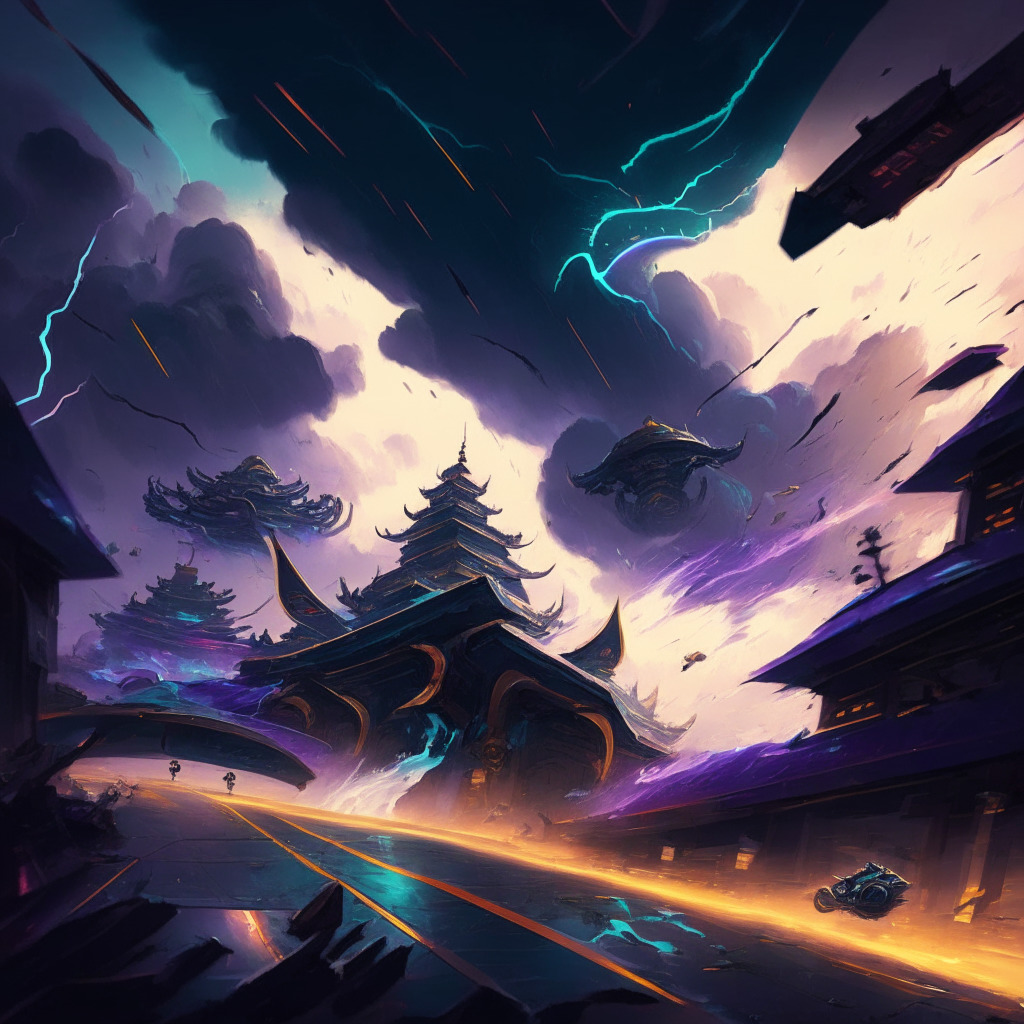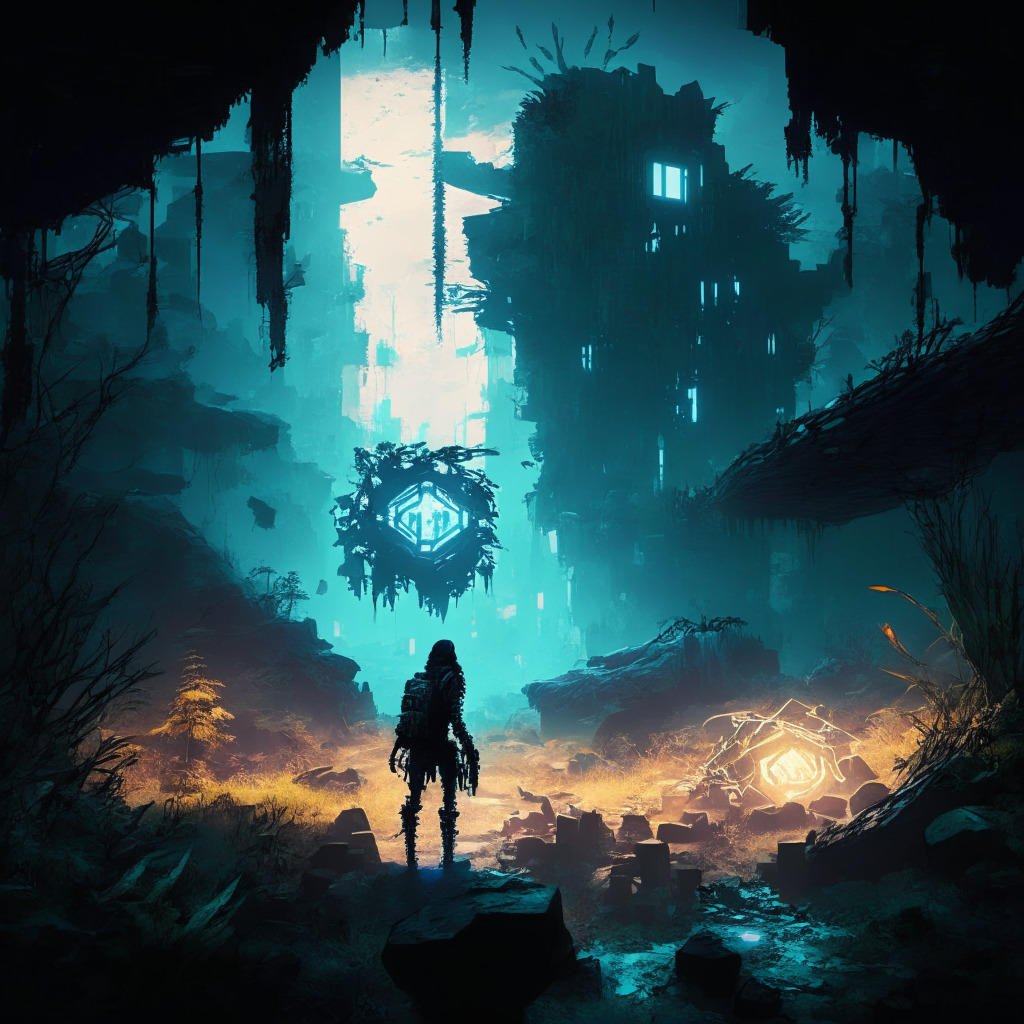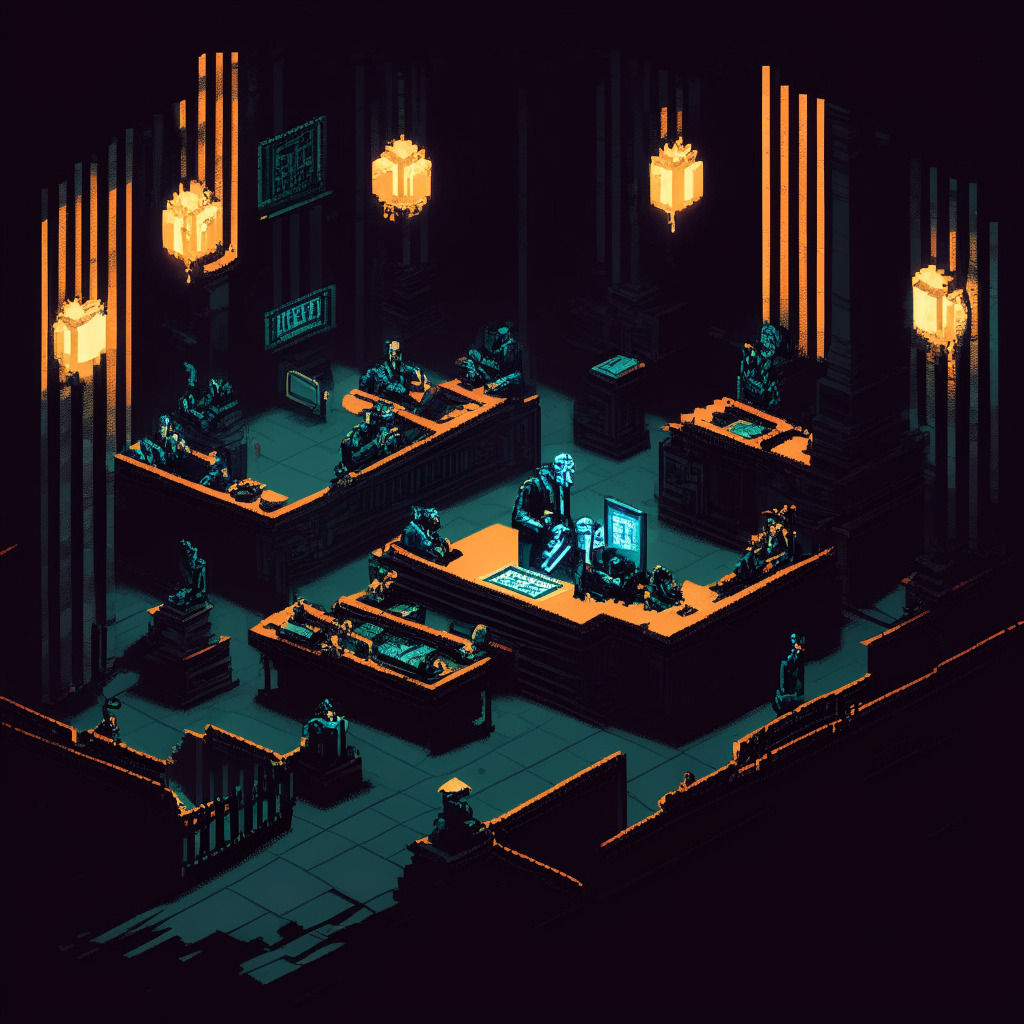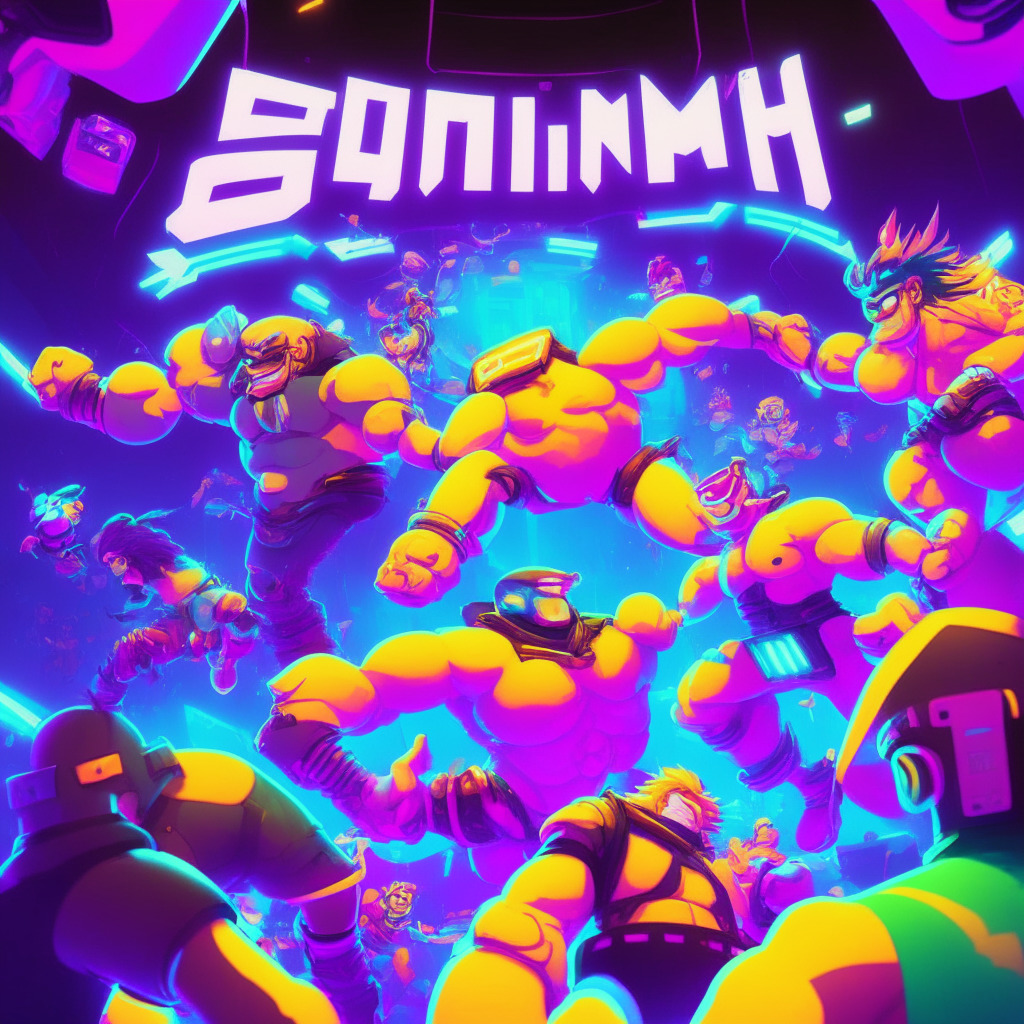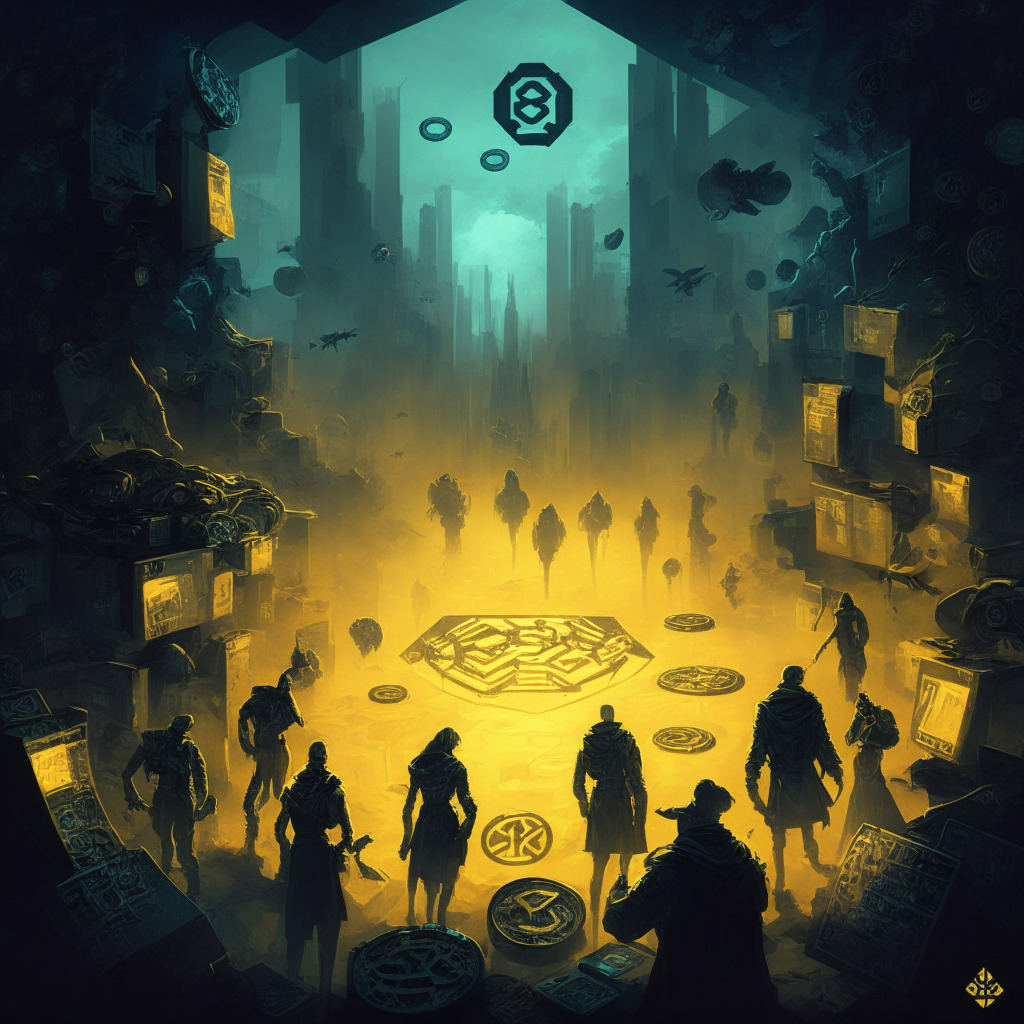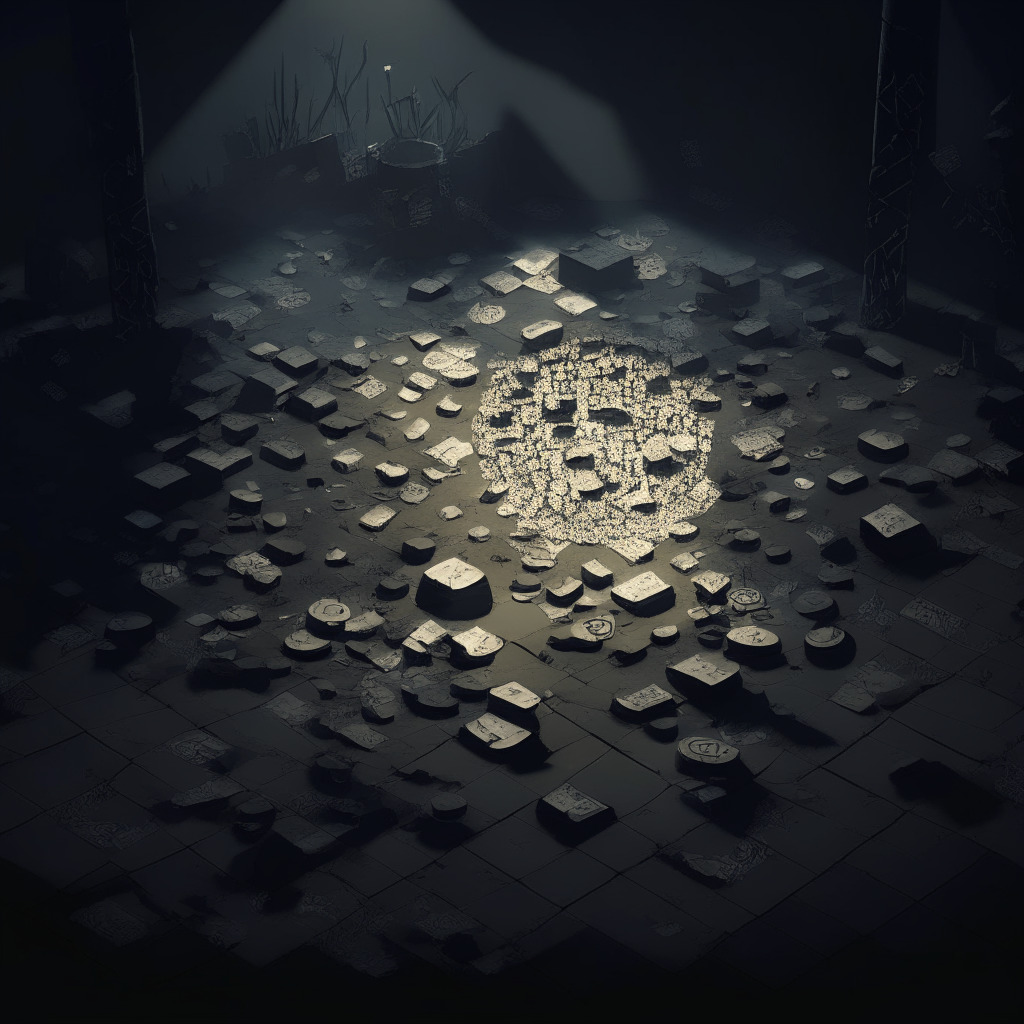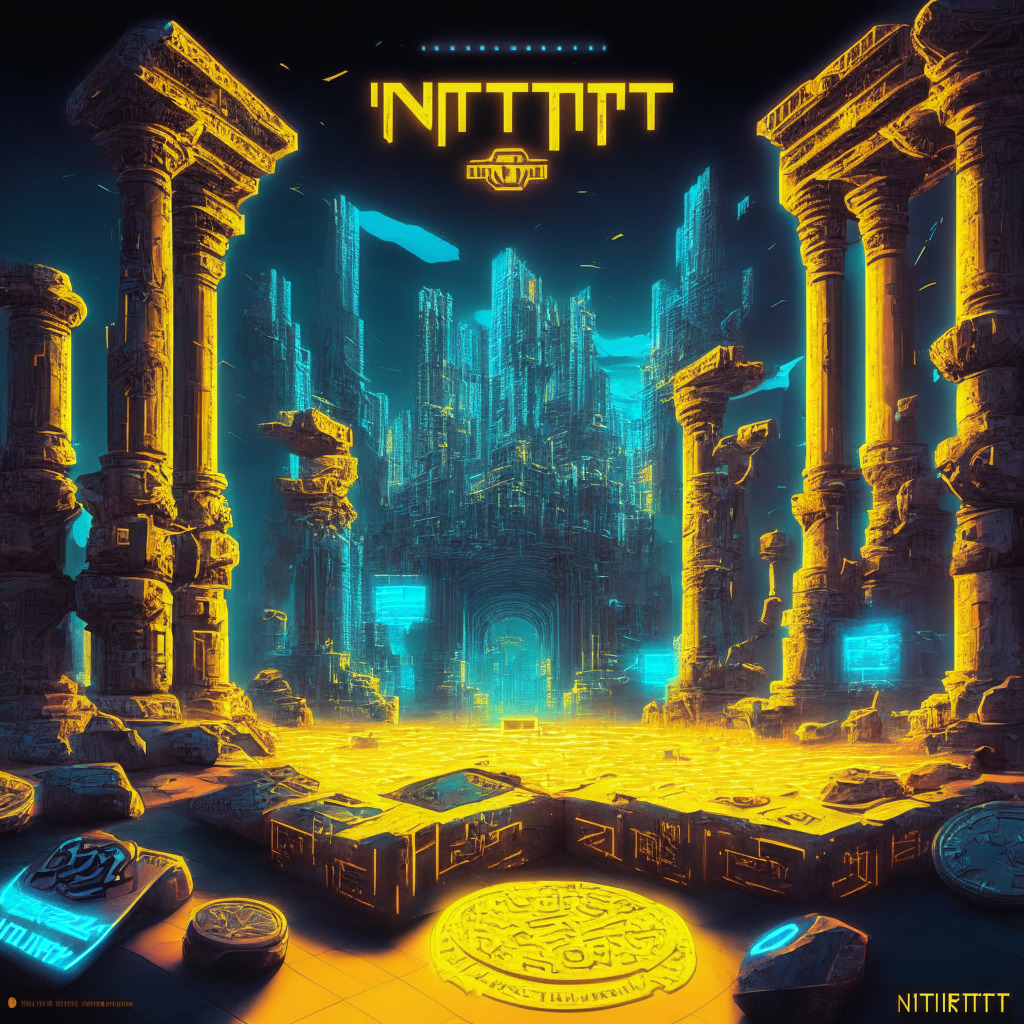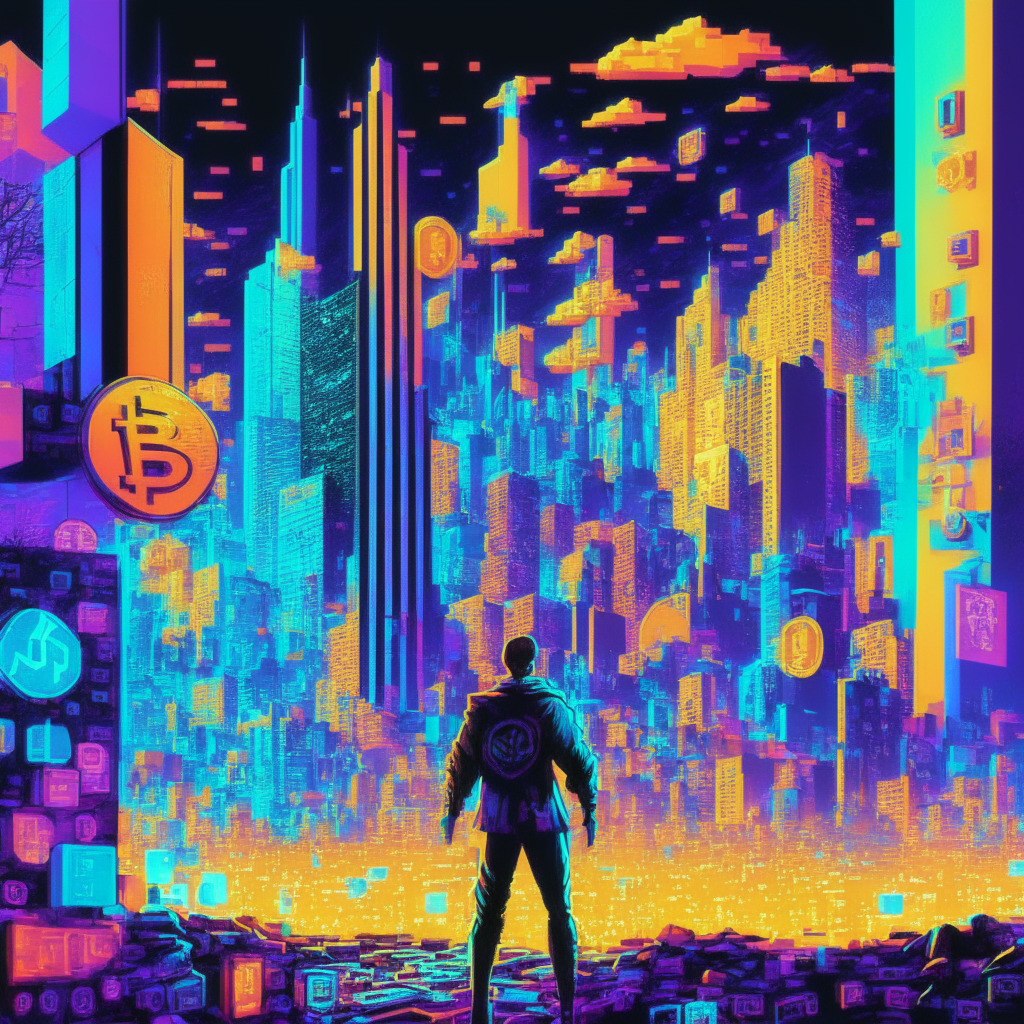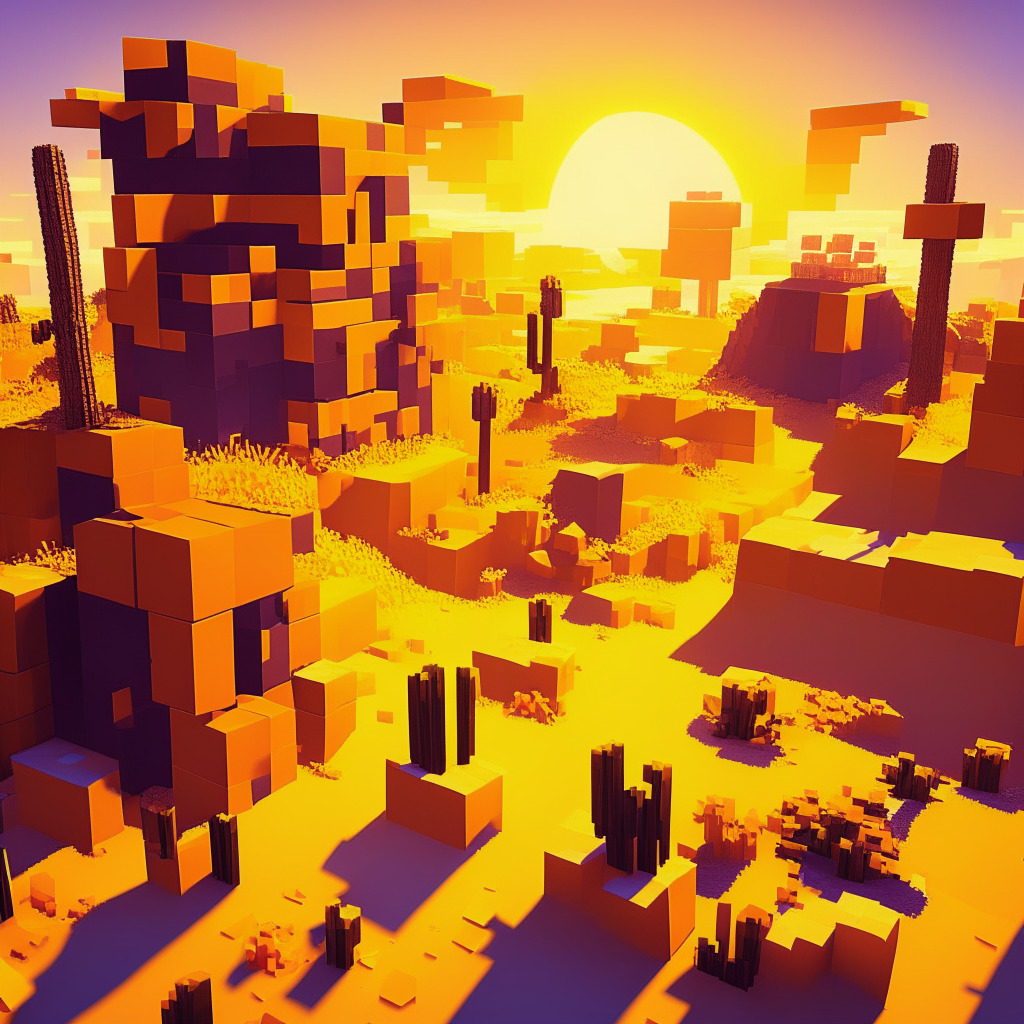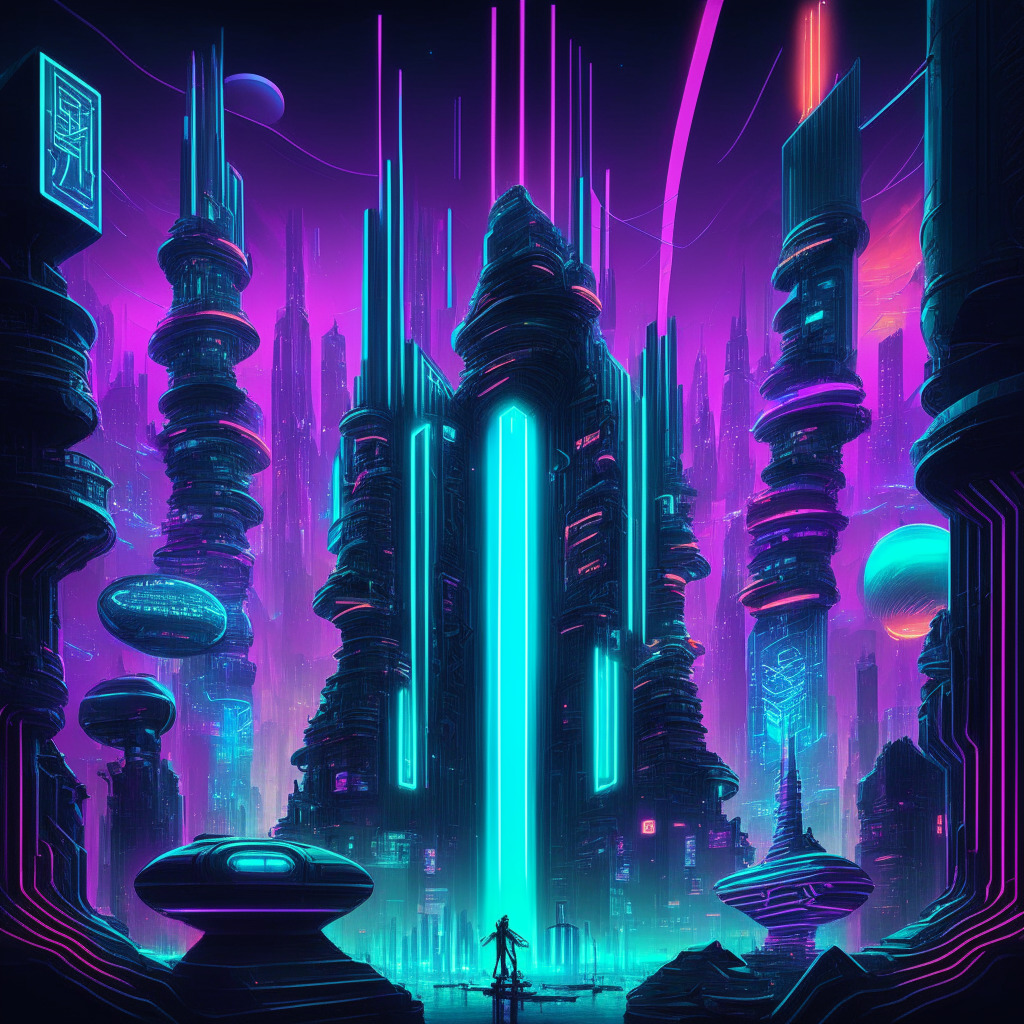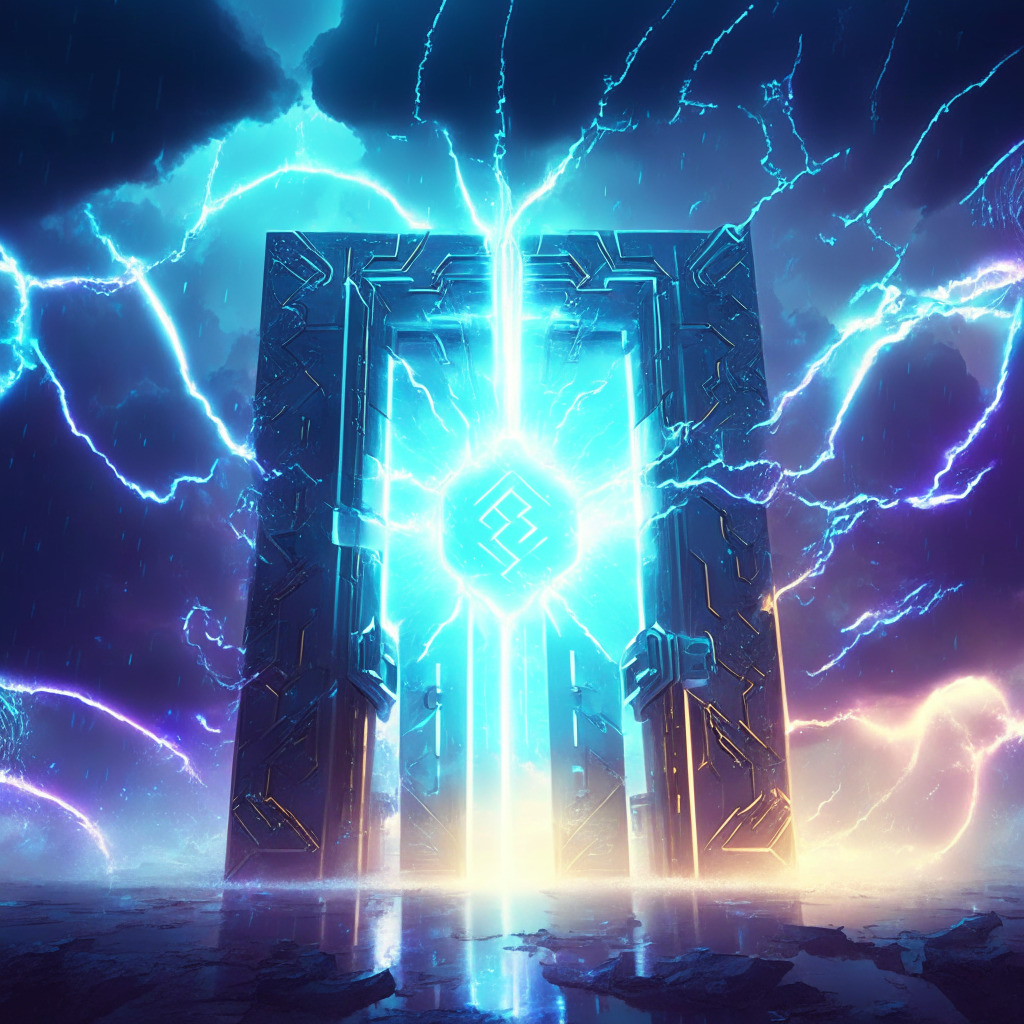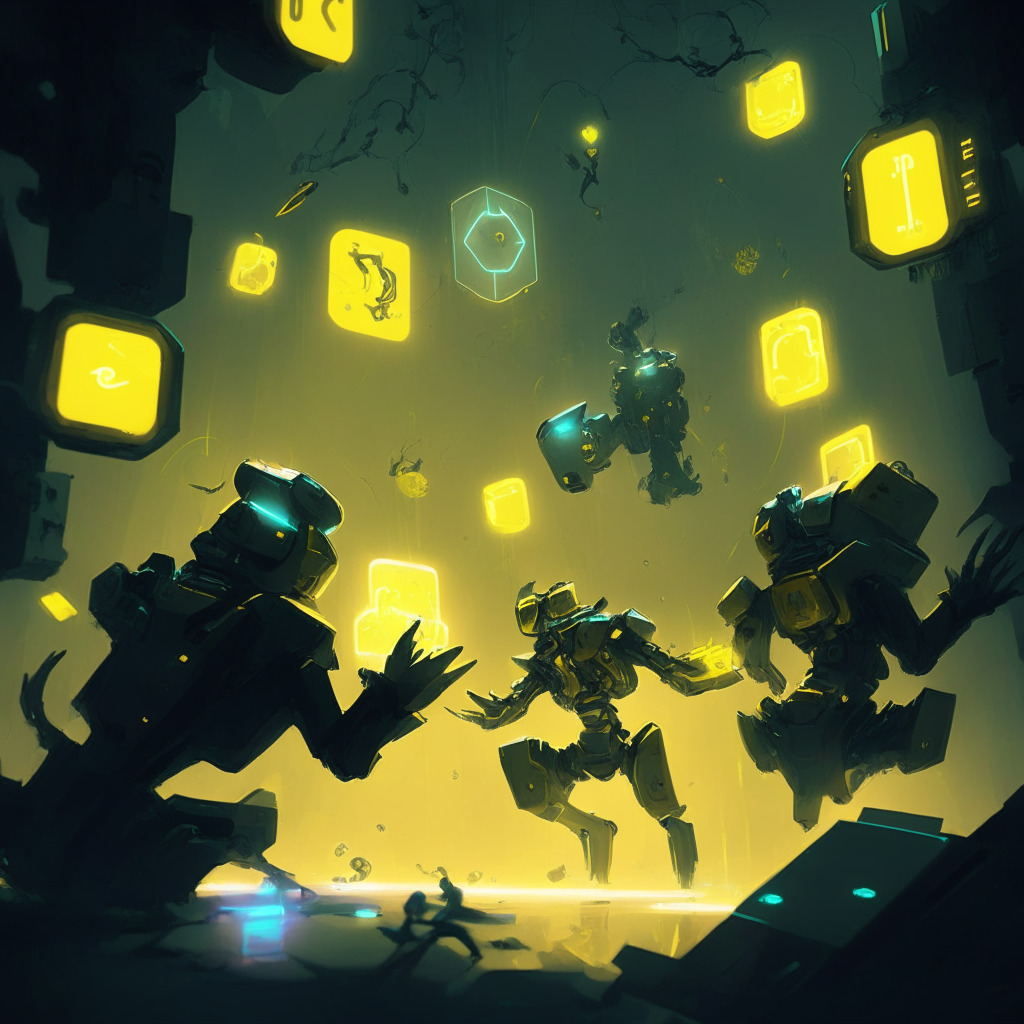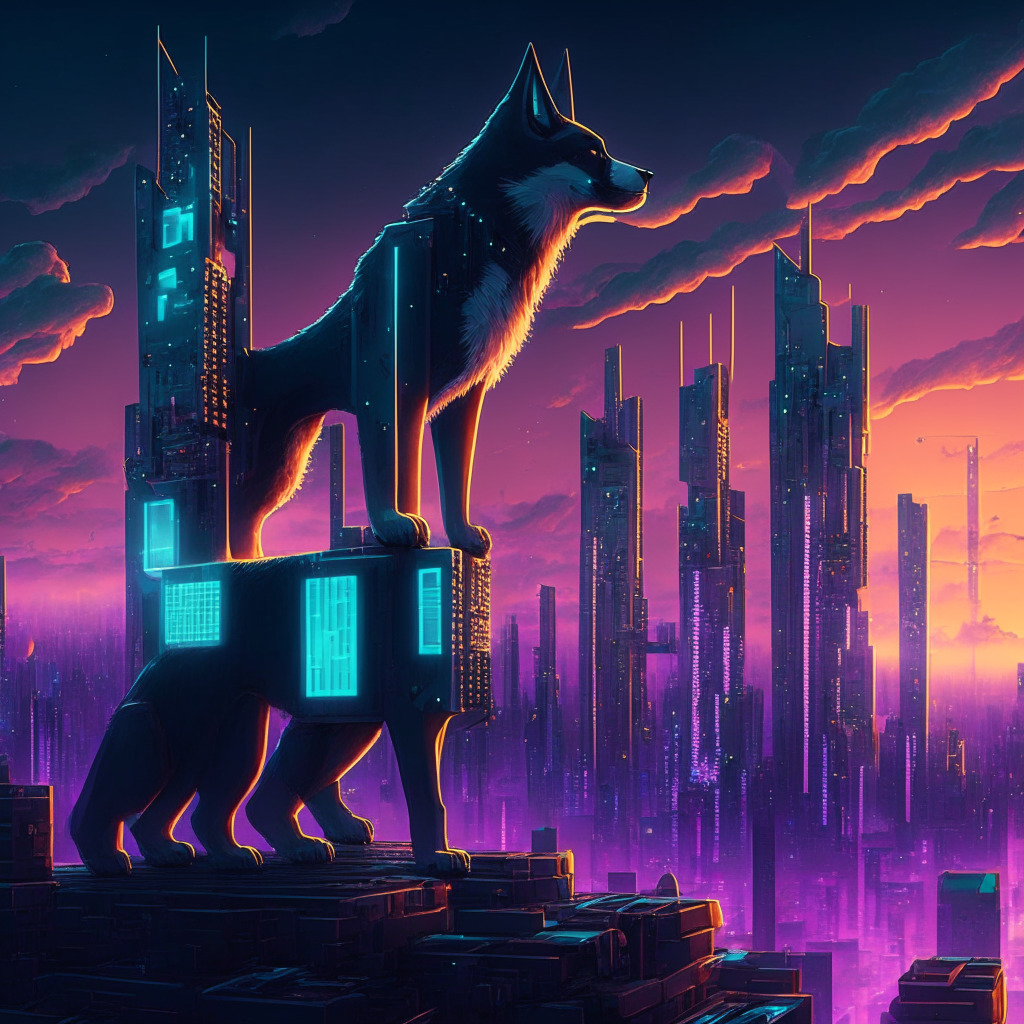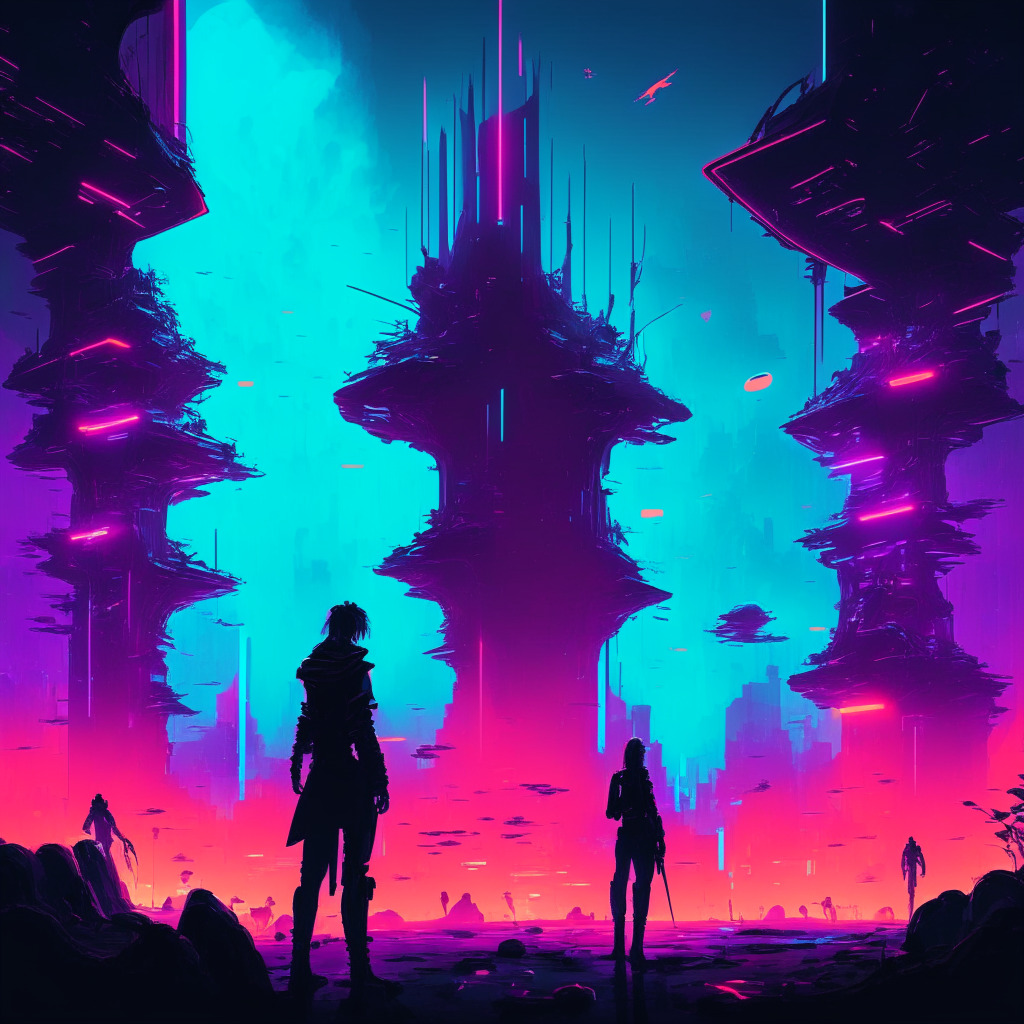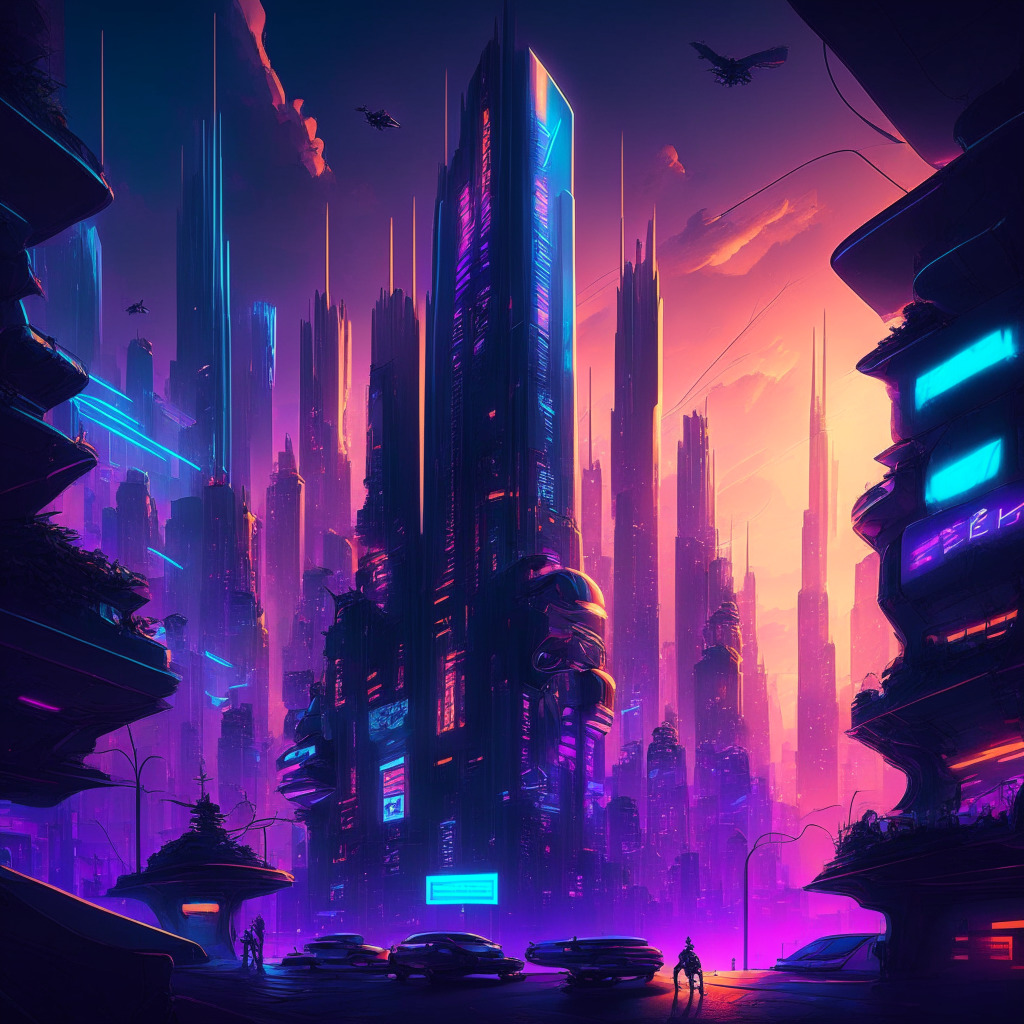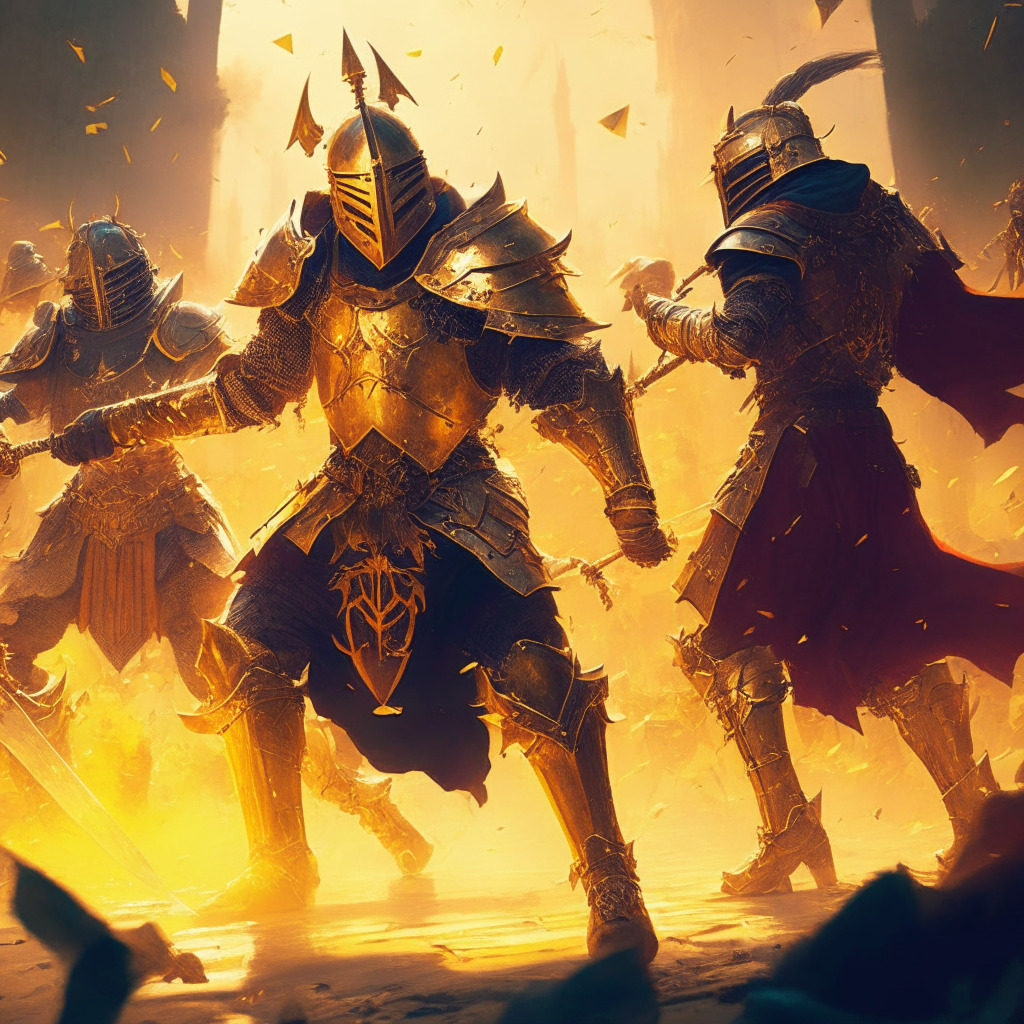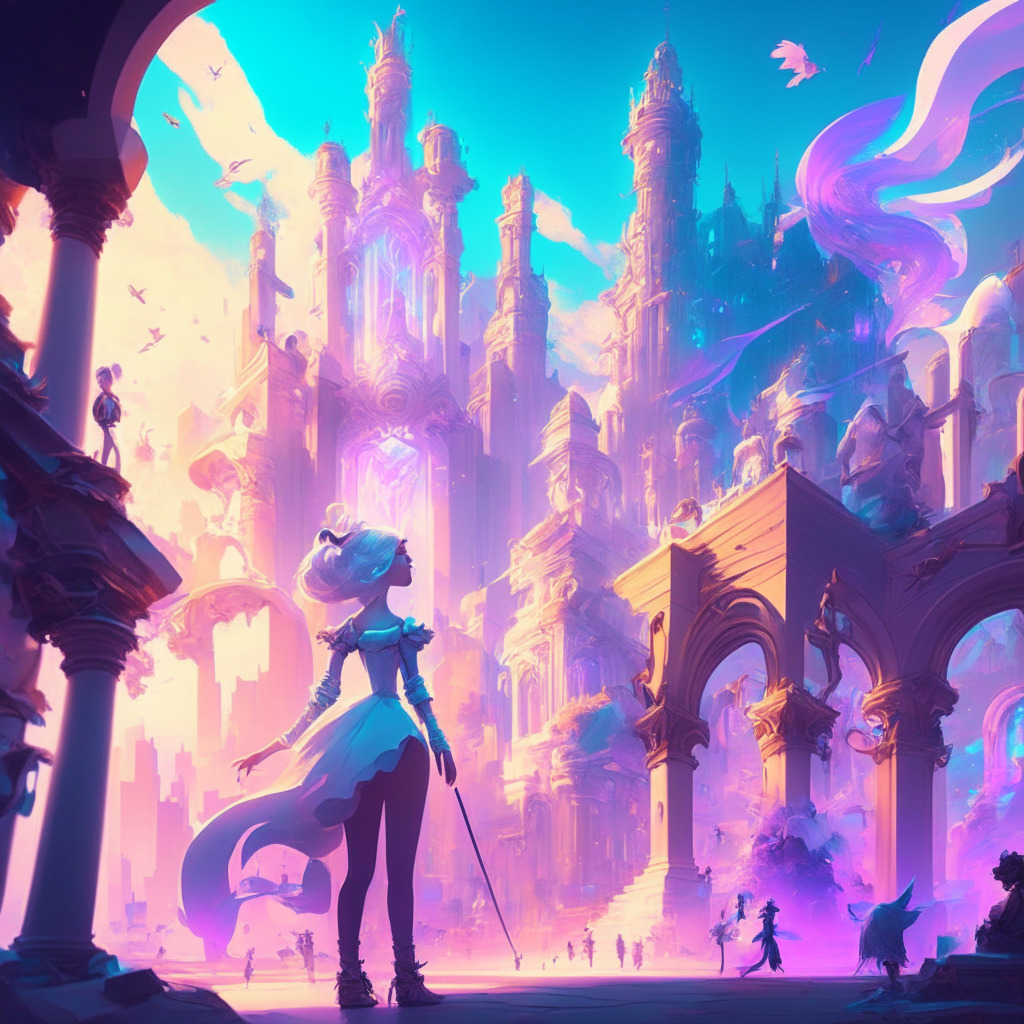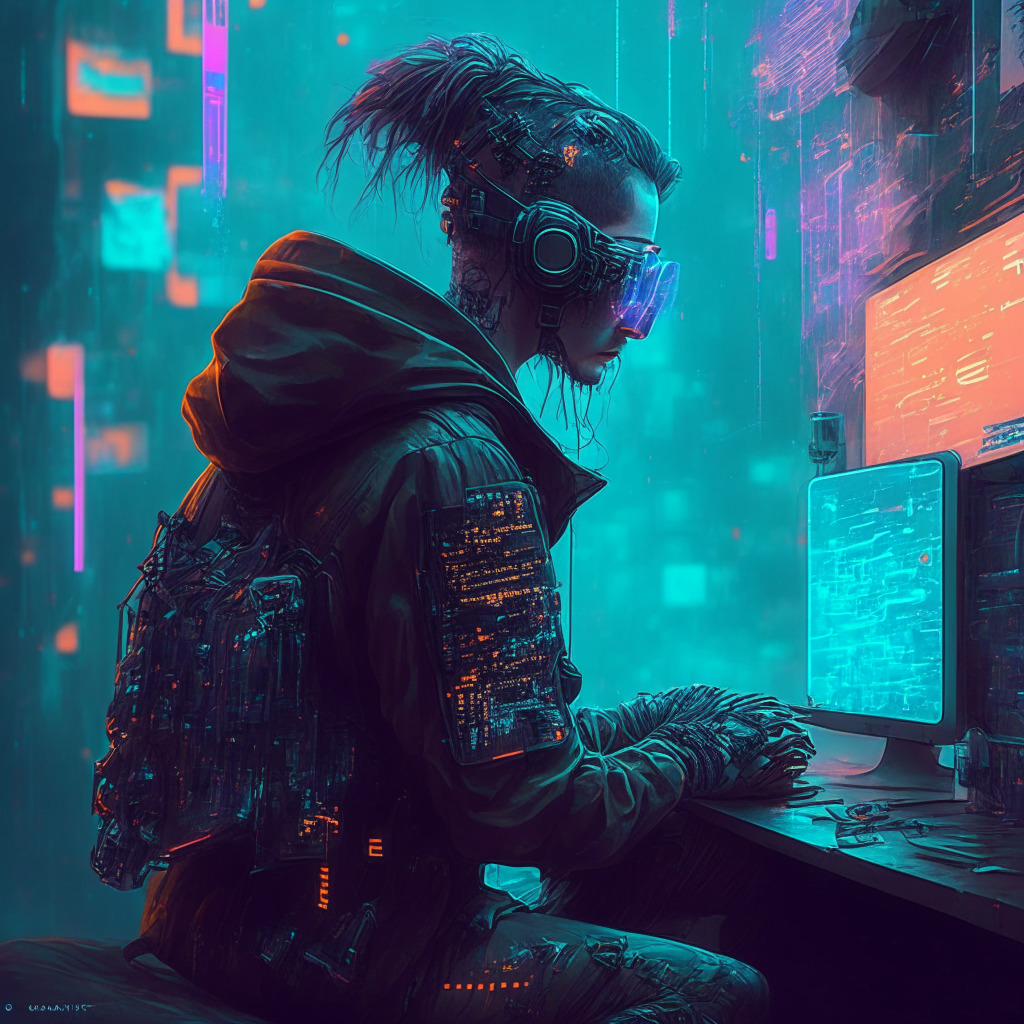Bandai Namco, in partnership with startup Attructure, launches AI-powered virtual pet game RYUZO, featuring digital creatures or RYUs on the blockchain network, the Oasys Network. The game employs use of ‘Soulbound Tokens’, ensuring uniqueness and prohibiting unauthorized transfers, and furthermore offers potential for trust-building within the Web3 community.
Search Results for: gaming industry
Exploring Web3 & Blockchain: An Insight into the Gaming Industry’s Future
“The entrance of Web3 into the gaming industry, particularly with blockchain gaming, presents a mix of anticipation and skepticism. Simon Davis, CEO of Mighty Bear Games, sees the potential for player-owned economies underpinned by digital property rights. However, achieving Web3 dominance requires addressing user education, especially regarding private key holdership, and enhancing mobile-driven adoption.”
Triple-A Console-Style Games Entering Web3: Gaming Industry’s Decentralized Evolution
The Web3 gaming space is set to evolve with more triple-A console-style games launching in the upcoming year, attracting traditional gamers to decentralized gaming. Despite regulatory challenges, the gaming industry is moving towards a hybrid model embracing blockchain technology, NFTs, and the decentralized metaverse.
Balancing Blockchain and Gameplay: NFTs, Scalability, and the Gaming Industry’s Future
In this article, the fusion of blockchain technology and the gaming industry is explored, discussing the potential impact of non-fungible tokens (NFTs) on gaming. Industry expert Chris Clay highlights the importance of balancing NFT benefits with engaging gameplay experiences, while addressing potential challenges and skepticism surrounding this emerging technology.
Play-to-Earn Gaming: Revolutionizing the Industry or Diluting its Essence?
“Play-to-earn” games, integrating blockchain and cryptocurrencies, allow players to earn real-world value, revolutionizing the gaming industry. However, concerns include overshadowing genuine gaming experiences, and complexities in navigating blockchain technology. The coexistence of monetary incentives and pure gaming enjoyment remains a debate.
Veloce’s VEXT Token: Revolutionizing the Gaming and Racing Industry Through Decentralization
Veloce, the world’s leading digital racing media network, partners with MDRxTech to launch its blockchain utility and governance token, VEXT. The token will empower the Veloce community to govern decentralized assets and offer benefits like influencing assets’ direction, transacting across games, and earning rewards for an enhanced user experience. This marks a milestone in Veloce’s journey towards revolutionizing gaming and racing with technology, community, and decentralized control.
The Future of Gaming: Exploring Blockchain’s Role in Web3 Gaming’s Meteoric Rise and Challenges
“Web3 gaming, a blend of video gaming and blockchain technology, is revolutionizing the gaming scene with aspects like decentralization, true ownership, and community. Innovations such as play-to-earn, NFTs offer a respite from Web2 monopoly. However, the fast-paced progress of Web3 gaming requires keeping up with promising projects in the blockchain-oriented gaming ecosystem.”
Unleashing AI and Blockchain’s Potential in Gaming: New Dimensions or Risky Bet?
“Ryan Wyatt, former gaming head at Google and YouTube, outlines AI’s role in the gaming industry. While not a replacement for tasks, AI will aid game teams to accomplish more. Wyatt sees blockchain’s potential in game development and its necessity in holding accountability over AI advancement due to its transparent, reliable nature.”
Unleashing the Tamadoge Pet Store: A New Milestone in Web3 Gaming and NFTs
Web3 gaming pioneer, Tamadoge, unveils its new Pet Store, a marketplace for digital goods within its gaming ecosystem. With its native currency, TAMA, experiencing an 11% increase and significant trading volume, this development indicates growing optimism in crypto-powered gaming. The Tamadoge platform is expanding with planned integration of the Pet Store into mobile apps, fostering an innovative gaming experience.
Ebbing and Flowing Tides: Korea’s Blockchain Landscape Amidst Market Speculation and Gaming Innovation
“Korea Blockchain Week spotlighted the rise of blockchain in gaming industry. The downfall of local Terra blockchain led to increased scrutiny in Korean projects. Despite skepticism, trade activity on local exchanges is rising, and mainstream banks are exploring crypto custodianship.”
Unveiling MetaCene: Revolutionizing Blockchain Gaming or Creating a Risky Bubble Economy?
MetaCene, a next-generation blockchain MMORPG developed with an investment of $5 million, aims to redefine civilizations through player interactions with in-game non-fungible tokens (NFTs). Incorporating AI and blockchain technologies, MetaCene departs from conventional gaming, focusing less on financial gain and more on pure gaming experience.
Gaming Blockchain Platform Gala Games: Internal Wars, Lawsuits and a Question on Its Future
“The founders of Gala Games, a blockchain gaming platform, face lawsuits accusing each other of financial misconduct, including stealing and selling ~$130M worth of Gala tokens and misusing Gala assets. This situation raises questions about the integrity of the gaming platform and the importance of transparency and internal corporate governance in the blockchain industry.”
Exploring the Intersection of Gaming and Blockchain: Potentials, Challenges, and the Quest for a ‘Wow’ Moment
“In the convergence of blockchain and gaming, creating a ‘wow’ moment like ‘EVO Moment 37’ could trigger widespread interest and help crypto games gain a broader audience. Meanwhile, Layer-1 network Aelf is offering grants to studios to create blockchain games on their platform, predicting a substantial growth of the blockchain gaming market. Also driving change are games like Nitro Nation, which cleverly integrate NFTs in gameplay.”
Play-to-Earn Dilemma: Analyzing Crypto Gaming Opportunities and Risks Amidst Law Enforcement Warning
“Crypto games like Axie Infinity, based on the Ethereum blockchain, are drawing law enforcement scrutiny due to their play-to-earn model. Despite potential earnings, these games carry potential risks including loss of earned tokens and NFTs due to mistakes or scams. Players are advised to conduct extensive research before investment. Blockchain adoption is being fast-tracked in the Philippines, illustrating the dual nature of crypto world: potential benefits and need for caution and knowledge.”
Blockchain Gaming’s Dilemma: Illuvium’s Fall and the Quest for Quality Experience
The gaming industry’s move towards GameFi highlights concerns such as unfinished games and underperforming titles in the blockchain gaming realm. Although blockchain games like Illuvium generate excitement, there is criticism this is more hype than substance. Prioritizing quality gaming experience alongside market appeal and consumer trust could determine these projects’ success.
Exploring Immutable’s zkEVM: A Game Changer for Web3 Gaming or a High Risk Load?
Immutable is testing its new blockchain technology layer, zkEVM, aiming to reduce reliance on singular network infrastructure. The zkEVM, designed to lower gas fees and boost transaction rates, seamlessly integrates with the Ethereum Virtual Machine, enabling easy transition of existing smart contracts. However, developer autonomy brings potential risks and challenges in infrastructure connectivity.
Illuminati Capital’s Audacious Venture into Blockchain and Web3 Gaming: A Calculated Risk or Folly?
“Dubai’s Illuminati Capital is investing $50 million in early-stage blockchain and Web3 gaming startups. Relying on Blockchain expertise and finance acumen, the venture fund aims to operate as partners, with a unique investment strategy to actively assist companies. However, their foray into the unpredictable world of Web3 gaming presents potential risks and rewards.”
Metaverse Losses and Blockchain Gaming: Navigating the Unchartered Waters of Cryptocurrency Integration
“Facebook’s Meta invests heavily in the metaverse despite losses, while in the blockchain gaming space, Alchemy: Battle for Ankhos integrates cryptocurrencies and AI. Meanwhile, Ultra, a crypto gaming startup, builds a tournament platform with its blockchain network for the thriving eSports industry.”
Bitcoin Enters the Gaming Zone: Exciting Innovation or Risky Move?
“New Bitcoin City, a recently launched platform, uses Bitcoin to create games, conduct NFT auctions and operate a marketplace. Further expanding Bitcoin’s utility, developers have leveraged BRC-20 standards to issue tokens and create DeFi applications, extending Bitcoin’s impact beyond just a digital currency.”
Alphapo Crypto Breach: Unraveling a $60 Million Heist and Its Ripple Effects on the Industry
“The recent Alphapo payment breach has seen estimated damages rise to over $60 million. Initial losses, previously estimated at $31 million, were hugely underestimated. The breach involved at least $21 million drained from Alphapo’s hot wallets. An additional $37 million was stolen from addresses on the Bitcoin and Tron networks.”
Exploring the Confluence of Blockchain and Gaming: A Brave New World or a Field of Uncertainty?
The community-operated “Satlantis” server in Minecraft now allows players to earn Bitcoin through in-game tasks, showcasing blockchain technology within mainstream gaming. However, this highlights both skepticism and enthusiasm for the convergence of blockchain and gaming, suggesting an untapped frontier for innovation.
Crypto Gaming Revolution: Exciting Opportunities or Overhyped Disruption?
Prominent esports players including Dota 2’s Erik Engel express optimism about the potential of blockchain integration in the gaming industry, seeing it as a way to enhance players’ experiences beyond mere entertainment. However, skepticism persists among some traditional gaming entities, even as others believe that the adoption of blockchain and Web3 technologies in gaming is inevitable and could revolutionize the industry.
Binance Labs’ Bold $15M Investment in Xterio: Leaping Forward in AI-Driven Blockchain Gaming
Binance Labs has committed $15 million to support Xterio, a rising Web3 game platform and publisher, intensifying its push for innovation in game and technology development. Despite regulatory scrutiny, Binance Labs continues investing in promising firms, aiming to expand Xterio’s AI-driven interactive experience and produce quality gaming assets. The investment further integrates Xterio’s token into the BNB Chain ecosystem, illustrating the investment potential in AI-empowered Web3 gaming.
Google Play Greenlights Blockchain-Based Apps with NFT Rewards: A Glimpse into the Gaming Future or a Risky Gamble?
Google Play Store has started to allow games featuring nonfungible token (NFT) integrated rewards on its store, owning to relaxation in its stance towards blockchain-based apps. However, developers are restricted from glamorizing potential monetary earnings or allowing gambling with loot boxes.
Blockchain Gaming Revolution: Spielworks’ Refundable NFTs and the Balance of Innovation and Caution
Blockchain gaming startup Spielworks has partnered with Mycelium Network to create a refundable Non-Fungible Token (NFT) program. The NFTs, named “Reverties”, allow gamers to receive full refunds in USD Coin through a new minting mechanism. Additionally, interest from the decentralized finance lending pool contributes to environmental causes. However, potential challenges include the sustainability of the program and uncertainty over user reception of the new minting process.
Monero-Seeking Cyberattack Threatens Gaming Giant Razer: A Call For Firmer Cybersecurity Measures
Gaming gear manufacturer, Razer, recently fell victim to a serious cyber attack, with sensitive information including source code and login details stolen. Razer is conducting an investigation, but the breach highlights the urgent need for robust cybersecurity strategies in the rapidly advancing tech and gaming industry.
Unraveling Shibarium: The Next Big Step for Blockchain Gaming & Metaverse Applications
“Shibarium, a highly anticipated layer 2 blockchain, is set to go live. Designed to alleviate congestion and reduce scaling issues, it will consolidate multiple off-chain transactions into one ‘layer 1’ transaction. Shibarium has tested well, with around 20 million transactions from approximately 16 million wallets. Emphasizing gaming and metaverse applications, Shibarium could be pivotal for the Shiba Inu meme coin’s evolution.”
Navigating the Gaming Landscape: Unpacking the Blockchain and GameFi Synthesis
“The potential incorporation of blockchain in gaming could fuel an exciting GameFi sector where the lines between blockchain users and gamers blur. Yet, the successful integration so far remains a challenge – both technically and from a user’s standpoint. Real, immersive blockchain games may unlock mass adoption. Future models should move past speculative motives and build stellar games leveraging the technology’s unique features.”
Mythical Games Secures $37M Funding: Web3 Gaming’s Future & Legal Battles Unfold
Web3 gaming studio Mythical Games recently raised $37 million in the first part of their Series C extension round, reaching a $1.25 billion valuation. The firm plans to optimize its business model, enhance infrastructure, and launch new games in 2023.
Fableborne: A Promising Blockchain Gaming Venture or Another Crypto Hype?
Web3 gaming studio Pixion Games raised $5.5 million in seed funding for its blockchain-based game Fableborne, backed by prominent investors like Avalanche Foundation. The action-based RPG operates on the Avalanche network, featuring on-chain assets. Fableborne showcases the potential of crypto gaming despite a highly competitive market and current crypto investment slowdown.
Web3 Gaming’s Critical Crossroads: Quality, Economies, Engagement & Fun Unleashed
Web3 gaming, currently at a critical crossroads, must prioritize game quality, sustainable economies, engagement, and fun to succeed like the mobile gaming market. Enhancing game quality, building sustainable economies, increasing engagement, and crafting fun games will elevate Web3 games and dismantle stigmas.
Embracing Web3 in Gaming: NFTs, Decentralized Streaming, and Winning Over Skeptical Gamers
Glover suggests Web3 content creators should focus on existing social platforms and avoid complex NFT terminology to maintain audience engagement. Decentralized streaming platforms may present an alternative solution for creators dissatisfied with centralized platforms like Twitch, providing more control over communities.
